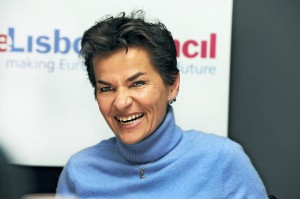I would like to thank the scientists and the IPCC team chaired by Dr Rajendra Pachauri for their painstaking work in delivering the synthesis report of the 5th assessment for approval.

It comes in advance of the UN Climate Convention’s conference in Lima, Peru where one key aim is to deliver a new draft universal agreement that can be finalized in Paris, France in December 2015.
The contribution made by the IPCC over two decades has been incalculable in terms of providing the gold standard risk assessments that governments need for understanding and acting on climate change.
With every IPCC assessment those risks have become clearer and more sobering as have the likely impacts on lives, livelihoods and the health of our world now and for generations to come.
In its first assessment in 1990, the IPCC commented that observed temperature increases were “broadly consistent with predictions of climate models, but it is also of the same magnitude as natural climate variability.”
The second assessment, in 1995, said: “Results indicate that the observed trend in global mean temperature over the past 100 years is unlikely to be entirely natural in origin.”
In 2001, its third assessment reported: “There is new and stronger evidence that most of the warming observed over the last 50 years is attributable to human activities.”
By 2007, the consensus had reached “very high confidence” – at least a 90% chance of being correct – in scientists’ understanding of how human activities are causing the world to become warmer. Today the 5th assessment puts that certainty at 95% – a level at which to not act collaboratively and in a timely manner would fly in the face of both reason and responsibility.
The good news is that governments everywhere have been increasingly internalizing and acting upon the IPCC’s findings as have cities, investors, companies and citizens ranging from environmental groups to faith-based organisations.
There is a strong head of positive steam building towards Lima and Paris – the IPCC has and will continue to play a crucial role in bringing forward the science upon which the transformational policies needed to realise a low carbon, and ultimately climate neutral world in the second half of the century, can be forged.
